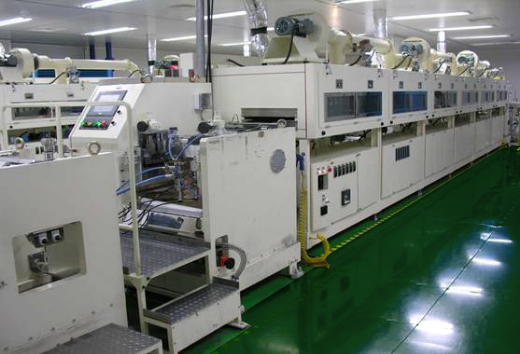Smart Grids and the Advantages of Lithium Batteries
In recent years, the concept of smart grids has gained significant attention in the field of energy management. A smart grid is an advanced electrical grid that utilizes digital technology to efficiently manage the generation, distribution, and consumption of electricity. One crucial component of smart grids is the use of lithium batteries, which offer several advantages over traditional lead-acid batteries. In this article, we will explore the benefits of lithium batteries in the context of smart grids.
First and foremost, lithium batteries have a higher energy density compared to lead-acid batteries. This means that lithium batteries can store more energy in a smaller and lighter package. This is particularly important in the context of smart grids, as space and weight constraints are often a concern. The higher energy density of lithium batteries allows for more efficient utilization of storage space, making them ideal for installations with limited space availability.
Another advantage of lithium batteries is their longer lifespan. While lead-acid batteries typically last around 3-5 years, lithium batteries can last up to 10 years or more. This extended lifespan reduces the need for frequent battery replacements, resulting in lower maintenance and replacement costs for smart grid operators. Moreover, the longer lifespan of lithium batteries contributes to their overall sustainability, as it reduces the environmental impact associated with battery production and disposal.
Lithium batteries also offer faster charging and discharging rates compared to lead-acid batteries. This allows for more efficient energy management in smart grid systems. Faster charging and discharging rates enable quick response times to fluctuations in electricity demand and supply, ensuring a stable and reliable power supply for consumers. Additionally, the ability to rapidly charge and discharge lithium batteries increases the flexibility of smart grids, enabling them to integrate renewable energy sources such as solar and wind power more effectively.
Lithium batteries have a higher efficiency compared to lead-acid batteries. This means that a greater percentage of the stored energy can be utilized for power generation, resulting in reduced energy losses. The higher efficiency of lithium batteries contributes to the overall energy efficiency of smart grids, reducing energy wastage and improving the overall sustainability of the electrical grid.
Lithium batteries have a lower self-discharge rate compared to lead-acid batteries. This means that lithium batteries can retain their stored energy for longer periods without significant loss. This is particularly beneficial in the context of smart grids, where energy storage is crucial during periods of low electricity demand or when renewable energy sources are not generating electricity. The lower self-discharge rate of lithium batteries ensures that stored energy is readily available when needed, improving the reliability and resilience of smart grid systems.

Lithium batteries are more environmentally friendly compared to lead-acid batteries. Lithium batteries do not contain toxic substances such as lead and sulfuric acid, which are present in lead-acid batteries. The absence of these harmful substances makes lithium batteries safer to handle and dispose of. Furthermore, the higher energy efficiency and longer lifespan of lithium batteries contribute to a reduced carbon footprint, as fewer batteries need to be produced and disposed of over time.
The use of lithium batteries in smart grids offers numerous advantages over traditional lead-acid batteries. The higher energy density, longer lifespan, faster charging and discharging rates, higher efficiency, lower self-discharge rate, and environmental friendliness of lithium batteries make them an ideal choice for energy storage in smart grid systems. As the world moves towards a more sustainable and efficient energy future, the adoption of lithium batteries in smart grids will undoubtedly play a significant role in shaping the electrical grid of tomorrow.
-
 In the world of batteries, there are many different types and technologies available. One of the most popular and promising technologies is the lithium iron phosphate (LiFePO4) battery. This type of battery has become increasingly popular in recent years, due to its high capacity, long lifespan, and excellent safety profile. In this article, we will take a closer look at...اقرأ أكثر
In the world of batteries, there are many different types and technologies available. One of the most popular and promising technologies is the lithium iron phosphate (LiFePO4) battery. This type of battery has become increasingly popular in recent years, due to its high capacity, long lifespan, and excellent safety profile. In this article, we will take a closer look at...اقرأ أكثر -
 Introduction: In today's fast-paced world, reliable and long-lasting power sources are essential for various applications, ranging from renewable energy storage systems to electric vehicles. One such power source gaining popularity is the High-Capacity 12V 100Ah LiFePO4 Lithium Battery. This advanced lithium battery offers numerous advantages over traditional lead-acid batteries, including higher energy density, longer lifespan, and increased safety. In this...اقرأ أكثر
Introduction: In today's fast-paced world, reliable and long-lasting power sources are essential for various applications, ranging from renewable energy storage systems to electric vehicles. One such power source gaining popularity is the High-Capacity 12V 100Ah LiFePO4 Lithium Battery. This advanced lithium battery offers numerous advantages over traditional lead-acid batteries, including higher energy density, longer lifespan, and increased safety. In this...اقرأ أكثر -
 A high-quality 48V LiFePO4 battery charger is an efficient power supply device that can help ensure the longevity and reliability of your battery system. LiFePO4 batteries are known for their high energy density, long cycle life, and stable voltage, making them an excellent choice for a wide range of applications, from electric vehicles and solar energy storage systems to backup...اقرأ أكثر
A high-quality 48V LiFePO4 battery charger is an efficient power supply device that can help ensure the longevity and reliability of your battery system. LiFePO4 batteries are known for their high energy density, long cycle life, and stable voltage, making them an excellent choice for a wide range of applications, from electric vehicles and solar energy storage systems to backup...اقرأ أكثر -
 In the dynamic landscape of energy storage, the race to enhance lithium battery energy density stands as a beacon of innovation. Energy density, a crucial metric measuring the amount of energy stored per unit volume or mass, has been a focal point in the quest for more efficient and powerful lithium batteries. This article explores the breakthroughs propelling lithium battery...اقرأ أكثر
In the dynamic landscape of energy storage, the race to enhance lithium battery energy density stands as a beacon of innovation. Energy density, a crucial metric measuring the amount of energy stored per unit volume or mass, has been a focal point in the quest for more efficient and powerful lithium batteries. This article explores the breakthroughs propelling lithium battery...اقرأ أكثر -
 The world has witnessed a growing concern for the environment and a push towards sustainability. As we strive to reduce our carbon footprint and transition to cleaner energy sources, the role of batteries in our society has become increasingly vital. The battery industry is at the forefront of what some experts are calling the Battery Industrial Revolution, a movement that...اقرأ أكثر
The world has witnessed a growing concern for the environment and a push towards sustainability. As we strive to reduce our carbon footprint and transition to cleaner energy sources, the role of batteries in our society has become increasingly vital. The battery industry is at the forefront of what some experts are calling the Battery Industrial Revolution, a movement that...اقرأ أكثر -
 Lithium batteries have revolutionized the way we use portable electronic devices, and now, they are transforming the energy storage industry as well. The High Performance 12V 100Ah Lithium Battery with LiFePO4 technology is a prime example of how lithium batteries are changing the game for renewable energy storage. LiFePO4 technology, or lithium iron phosphate, is the most advanced lithium...اقرأ أكثر
Lithium batteries have revolutionized the way we use portable electronic devices, and now, they are transforming the energy storage industry as well. The High Performance 12V 100Ah Lithium Battery with LiFePO4 technology is a prime example of how lithium batteries are changing the game for renewable energy storage. LiFePO4 technology, or lithium iron phosphate, is the most advanced lithium...اقرأ أكثر -
 مقدمة: في السنوات الأخيرة، أصبحت محطات الاتصالات الأساسية جزءًا لا يتجزأ من حياتنا اليومية. وتتولى هذه المحطات مسؤولية إرسال واستقبال الإشارات لشبكات الاتصالات المختلفة، بما في ذلك خدمات الهواتف المحمولة والتلفزيون والإنترنت. لضمان اتصال موثوق به دون انقطاع، من الضروري أن يكون لديك نظام قوي للنسخ الاحتياطي للطاقة. ظهرت بطاريات الليثيوم ك...اقرأ أكثر
مقدمة: في السنوات الأخيرة، أصبحت محطات الاتصالات الأساسية جزءًا لا يتجزأ من حياتنا اليومية. وتتولى هذه المحطات مسؤولية إرسال واستقبال الإشارات لشبكات الاتصالات المختلفة، بما في ذلك خدمات الهواتف المحمولة والتلفزيون والإنترنت. لضمان اتصال موثوق به دون انقطاع، من الضروري أن يكون لديك نظام قوي للنسخ الاحتياطي للطاقة. ظهرت بطاريات الليثيوم ك...اقرأ أكثر

